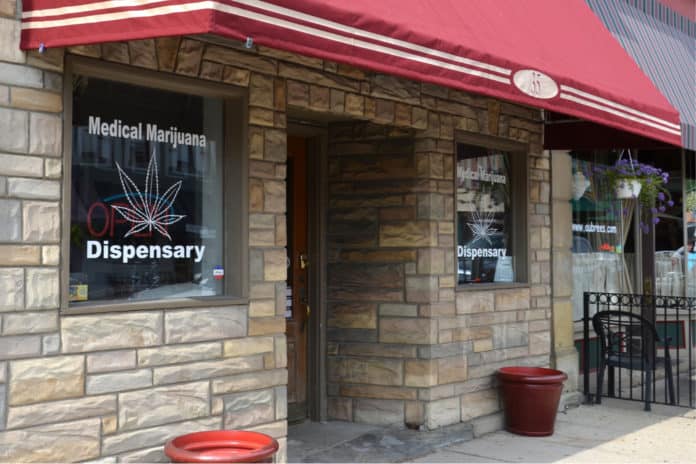It’s a story that’s playing out around the country. A landlord in Columbus, Ohio, refused to lease space to an upscale cannabis dispensary even though his shopping center was 50-percent vacant. The landlord was falling for the widespread—but false—notion that cannabis dispensaries attract drug addicts and criminals.
A majority of Americans approve of legalized cannabis, but only about half would be happy for a retail outlet to open in their neighborhood, according to the Pew Research Center. Those statistics suggest most Americans don’t have all the facts.
Surveys have shown the main concerns about dispensaries are worries about increased crime, lowered property values, and increased cannabis use by minors. However, there seems to be little proof these concerns are actually merited. For example, a study published in December in JAMA Pediatrics found cannabis use by those under age 21 actually decreased after prohibition was lifted in Washington state. Cannabis use, in general, is slightly down among teens.
Multiple studies over the past eighteen months have debunked the crime myth. A report in September by the Reason Foundation found that after Colorado legalized recreational cannabis, crime rates fell significantly in Denver neighborhoods with dispensaries. The Reason report also found no national evidence of increased property crime as a result of medical cannabis but did directly link medical cannabis to a 20-percent reduction in property crimes in California. Several other national studies have shown there’s no correlation whatsoever between cannabis stores and violent crime. Experts from the medical field to the Federal Reserve agree there’s no link. Even Snopes.com, the respected fact-checking website, has weighed in on the debate, issuing an unequivocal “false” on the question of whether there’s a demonstrable link between cannabis legalization and an increase in violent crime.
The most recent report, released in May by Leafly.com, reviewed data from more than 100 other studies. The authors determined licensed cannabis dispensaries resulted in almost no change to the crime rate—except to lower it in some instances. After medical marijuana was legalized in states that bordered Mexico, violent crimes, including robberies, murders and aggravated assaults, and crimes related to drug trafficking decreased by 13 percent, with the biggest reductions in counties less than 350 kilometers from the border, according to The Economic Journal.
Far from harming property values, Contemporary Economic Policy reported in November that home prices went up by 7.7 percent within a half-mile of a new cannabis outlet. Leafly concurred, finding dispensaries, much like coffee shops and banks, contributed to an increase in property values, up to as much as 8.4 percent.
It’s actually not that surprising. Dispensaries by law have state-of-the-art surveillance systems, which act as a crime deterrent for the immediate area. They’re also well-lighted and frequently have security guards on-site. Those things all discourage crime and contribute to a general sense of safety around dispensaries. Meanwhile, a University of California, Riverside, study in January 2018 showed that unlike cannabis dispensaries, liquor and tobacco stores are directly tied to a significant increase in violent crimes, particularly in urban areas. Study authors actually suggested that tobacco stores be regulated “to improve community health.”
The cannabis industry also pays well, meaning it attracts professional employees, not unsavory characters, who then spend money in those neighborhoods. The median annual salary of a cannabis job is more than $58,000, almost 11-percent higher than the overall U.S. median. Accountants, lab workers, marketers, tax experts, and other degreed workers make up more than half of the cannabis labor force.
The customer base isn’t much different. Cannabis users tend to have above-average incomes while high school dropouts are the least likely consumers of cannabis. Along with jobs, dispensaries bring new foot traffic into a neighborhood, meaning more potential customers for existing businesses, leading to an improved economic profile and the demise of other, less desirable businesses.
Cannabis doesn’t lead to crime waves—big or small—or blight. And the longer we have legal cannabis available, and the more states that come online after prohibition, the more obvious that will be.











